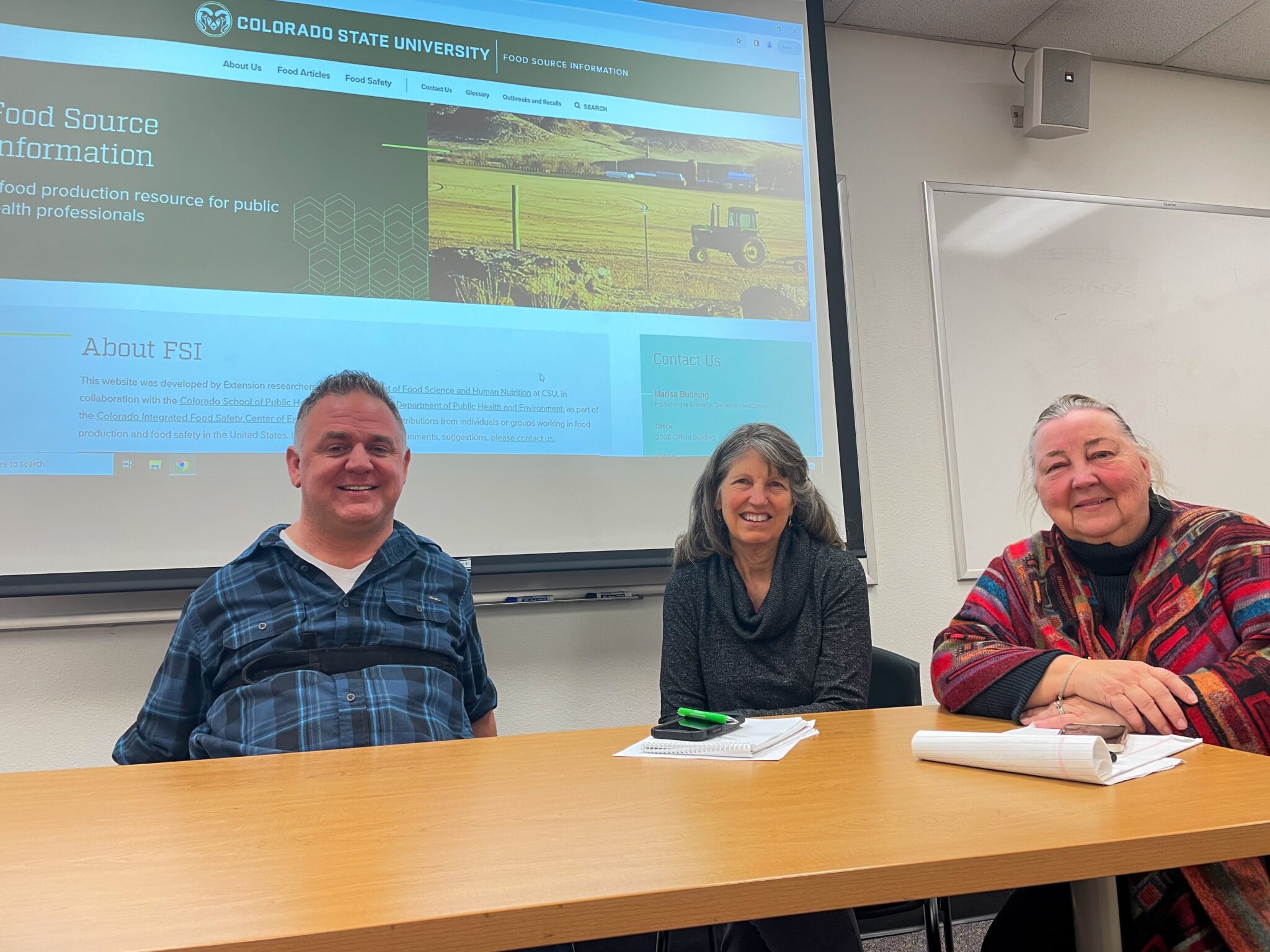Food Source Information, a website maintained by a team of collaborators from Colorado State University and the Colorado Integrated Food Safety Center of Excellence (CoE) at the University of Colorado-Anschutz, is celebrating its tenth anniversary as a resource for public health professionals.
The Colorado CoE is one of five centers supported by the Centers of Disease Control and Prevention under the authority of the Food Safety Modernization Act. The centers provide assistance and training for state and local health departments involved in tracking and investigating foodborne diseases.
Founding purpose
The goal of the FSI website is to provide readily available food production information to public health professionals during foodborne illness outbreak investigations.
The CSU team includes James Peth and Marisa Bunning, faculty members in the Department of Food Science and Human Nutrition, along with Catherine Davis, a graduate of CSU’s School of Public Health. Colleagues from the Department of Epidemiology at the University of Colorado-Anschutz include Elaine Scallan Walter and Alice White.
An article highlighting the impact of the website appeared in the January/February issue of Food Protection Trends.
The idea for the FSI website was formed after the 2011 Listeria outbreak associated with Colorado-grown cantaloupe. Following that outbreak, food safety experts from across Colorado met at CSU for a Listeria Summit to discuss lessons learned from the outbreak. One of the needs identified was rapid access to centralized food production information for public health professionals conducting outbreak investigations.
Evolution and impact
State and territorial public health agencies report an average of 850 foodborne outbreaks annually to the Centers for Disease Control and Prevention and these outbreaks are associated with a wide range of foods.
In-depth knowledge of food systems is generally outside the range of public health training, but this is familiar territory at land-grant universities such as Colorado State.
The FSI website was designed to be an ‘on tap’ resource that provides basic information and production practices for a range of food commodities. Peth, also a graduate of the Colorado School of Public Health as well as CSU, came up with the design of the website.
“Although originally planned as an online database, we chose to present the details in a more memorable website format, with one page dedicated to each food,” said Peth.
“We wanted to tell a story about each food to illuminate its historical, cultural, and economic importance to the state of Colorado, to provide details about its consumption, nutritional value, involvement in foodborne illness outbreaks or recalls, and most important, to illustrate with narrative and photographs its journey from farm to table. We trusted this would make it easier for health professionals to identify how the food might be contaminated at any point along the food production chain.”
The original goal was to promote better understanding of existing agricultural production practices within the Rocky Mountain region and increase awareness of risks associated with processing fresh produce.
This goal has broadened over the past 10 years, and the website now includes information contributed from other regions of the United States, and it currently addresses 45 types of food commodities, with new food articles being added every year.
More than 50 graduate students from several disciplines, including food science, public health, horticulture, and animal sciences, have contributed to the website as co-authors and reviewers of articles.
From 2020 to 2023, the website was accessed by users from across the globe, receiving more than 214,000 page views annually.
The Department of Food Science and Human Nutrition is part of CSU’s College of Health and Human Sciences.
